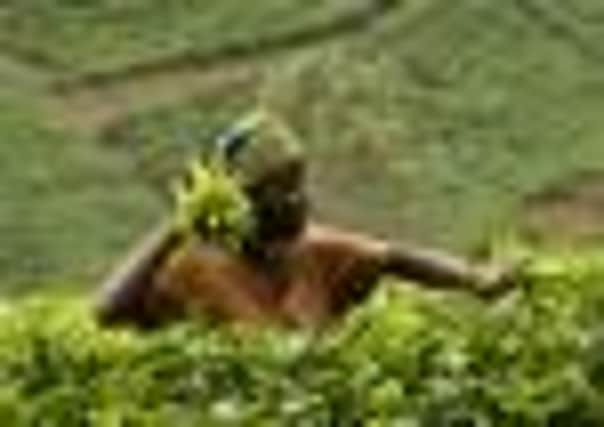Time and tea help to heal Rwanda’s grim scars


Those appalling images have begun to fade – in the West at least – from memory.
And few would imagine that the healing power of tea could be a key factor in the reconciliation process between the warring tribes the Tutsis and Hutus.
Advertisement
Hide AdAdvertisement
Hide AdBut now an exhibition of photographs by award-winning Yorkshire photographer Tim Smith is showing how this African country is reshaping itself as one of the continent’s leading lights with impressive economic growth and staggering social harmony.
Before 1994 few people in Britain would have been able to point to Rwanda on a map, let alone provide any clue as to its history.
Yet it is a beautiful, lush and mountainous country whose rich volcanic soils produce some of the world’s best tea.
It is likely to be remembered for the genocide of 1994, but this exhibition of photographs shows how its tea industry is playing a key role in the recent transformation of the country and its people.
Advertisement
Hide AdAdvertisement
Hide AdAnd it is tea that links seemingly remote communities living high in the heart of central Africa with North Yorkshire, the home of one of the most quintessential of British brands – Yorkshire Tea.
Mr Smith travelled to Gisovu, Mata and Kitabi, three tea estates in the rolling mountains that rise to 10,000 feet along Rwanda’s borders with Burundi and Congo.
They all border Nyungwe Forest, one of the largest tracts of mountainous woodland remaining in central Africa, and the only substantial expanse of rainforest left in Rwanda.
His photographs explore how, as Rwanda’s biggest export earner, tea is a very important part of the country’s on-going development process.
Advertisement
Hide AdAdvertisement
Hide AdThe pictures are a revealing portrait of communities that rely almost exclusively on the tea produced by Gisovu, Mata and Kitabi, the three estates which consistently command the top three prices of any teas grown in Africa and which supply Taylors of Harrogate, home of Yorkshire Tea and Yorkshire Gold.
The family business has been buying the best Rwandan teas since the 1970s and is now helping 10,000 tea farmers and their families to improve their livelihoods.
Given the country’s troubled past the tea industry has a vital role to play in the country’s future.
As the Director of the Rwanda Tea Authority, Anthony Butera, explains: “Rwanda is a country that’s gone through a very difficult time.
Advertisement
Hide AdAdvertisement
Hide Ad“We’re living in the aftermath of 1994 and a lot of hearts have been broken.
“People who killed and people who survived, and those whose relatives were killed, they are all having to live together.
“One of the things that brings them closer is working together in the tea gardens and factories. It’s part of the reconciliation process.
“That’s a very important role of tea. It’s part of a new era that the country is entering; engaging people in useful work rather than idleness, bad talk and planning bad acts. That leads to development of the country.”
Advertisement
Hide AdAdvertisement
Hide AdMr Smith has a long-standing interest in connections between Yorkshire and other parts of the world. He said: “In this particular case, I got in touch with Taylors with the possibility of doing a project on where they source their tea.
“Rwanda is a beautiful country tucked away in the middle of central Africa but that is set against the terrible events that took place back in 1994.
“Over the last 16 years or so it has made an extraordinary recovery.
“I have travelled quite a lot in Africa and I was very surprised how everything works there – my mobile phone coverage was better in Rwanda than in the Yorkshire Dales.
Advertisement
Hide AdAdvertisement
Hide Ad“But it is still a country that is coming to terms with what happened.”
He said one area which had made great strides was the revitalisation of the tea industry, making it a huge export earner, with Taylors of Harrogate one of the major customers.
“The exhibition isn’t just a set of pictures about how you grow and process tea,” he said. The tea estates there are absolutely enormous – thousands of people live and work on them. It’s a look at the communities on these estates that supply the tea for Taylors.
“Tea-growing and tea-processing are a major part of that but there are also schools and healthcare facilities.
Advertisement
Hide AdAdvertisement
Hide Ad“Community life is dependent on the tea economy. There are parallels with Bradford being totally reliant on textiles or Sheffield on the steel industry and in the same way there are these vast areas of Rwanda totally reliant on tea.
“It seems to be a completely and utterly remote area but it was quite interesting that if you talk to people in the tea fields they all know about Harrogate.”
The photographs go on show at the Exhibition Building as part of Saltaire Festival from September 8 to18.
THREE-DECADE LINK WITH YORKSHIRE
TAYLORS of Harrogate has been buying tea from Rwanda for more than 34 years.
Advertisement
Hide AdAdvertisement
Hide AdTea buyer Sanjay Kumar said: “At their best, Rwandan teas are renowned for being uniquely crisp and refreshing, with a distinctive liveliness. However, in the years following the genocide the quality of Rwandan tea fell and we were unable to buy the quantities we required at the high quality we demand.
“As part of our commitment to forging strong relationships with our growers and our constant drive to improve conditions for the farmers and their families, we are working to make positive changes to the Rwandan tea industry.”